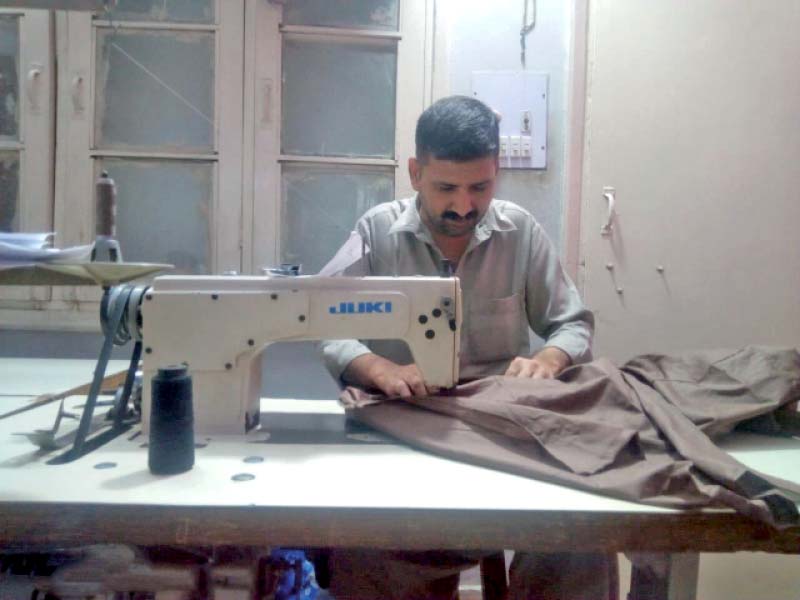
A recent survey conducted by The Express Tribune revealed that many people have not even bought new clothes for Eid this year, resulting in reduced businesses activities for tailoring shops across the city.
“Those who can afford easily purchase ready-to-wear shalwar kameez and kurtas from designer brands. Some people also order their clothes online. But for the majority, getting their clothes stitched from a tailor has been a norm since the creation of Pakistan. But not this year,” said Rao Muhammad Younus, a tailor from Karachi.
He said that in the past, tailoring shops used to be extremely busy, and orders would start pouring in at least three months before Eid.
“Even though we did not receive a large number of orders unlike the past, our workload has doubled this year and most of my junior staffers have to work for more than 14 hours per day to meet the target,” he said. “This is because many people only got a chance to visit the market after the 20th of Ramazan with the lifting of the lockdown. Hence, people purchased the fabrics and rushed to place their orders. Now we are under an immense burden.”
He added that owing to time constraints, tailors are largely refusing to accept orders that require complicated designs and stitching.
“Last year, gents’ tailoring shops would stitch 400 to 500 shalwar kurtas in Ramazan alone. This year, we have a target of stitching 150 to 200 suits within 10 days,” Younus said. “We are charging Rs800 to Rs1,500 to stitch a single suit.”
Likewise, tailors who specialise in stitching women’s clothes have seen a significant decline in the number of orders received for Eid this year. Not only that, but many home-based tailoring services run by poor women have also been adversely affected this Eid.
Sabiha Shahid, a tailor who has been stitching women’s clothes at home for the past 20 years, said sewing clothes is the only source of revenue for thousands of women in the city.
“Many women cannot leave their homes for work due to cultural barriers, therefore, they sew clothes at home,” explained Shahid. “Some women only take orders for day-to-day wear, while others work on a commercial basis and have contracts with big garment businesses, factories, and boutiques.”
Shahid added that factories and boutiques pay as low as Rs30 per shirt for even complicated designs, while she is able to make Rs250 to Rs350 per suit.
“Home-based female tailors, however, do not get as many orders as a tailoring shop. We get to stitch about 10 to 15 suits to earn a meagre amount of Rs10,000 per month,” Fehmida, another home-based tailor, said. “Due to Covid-19, however, many people have lost their jobs and are struggling themselves, so it seems that a lot of women and girls are not buying new clothes this year.”
Fehmida, who is a mother of three kids and the only breadwinner in her family, added that rich women can afford to purchase ready-to-wear clothes from designer outlets anytime they want, but millions of women and girls save money the entire year to purchase clothes on Eid.
“For the rich, it is easy to go to the malls and purchase an Rs.10,000 outfit within minutes. For others, it takes a whole month of hard work to earn a similar amount and feed their children. The pandemic has only worsened the situation for the poor.”
Published in The Express Tribune, May 24th, 2020.




































COMMENTS
Comments are moderated and generally will be posted if they are on-topic and not abusive.
For more information, please see our Comments FAQ